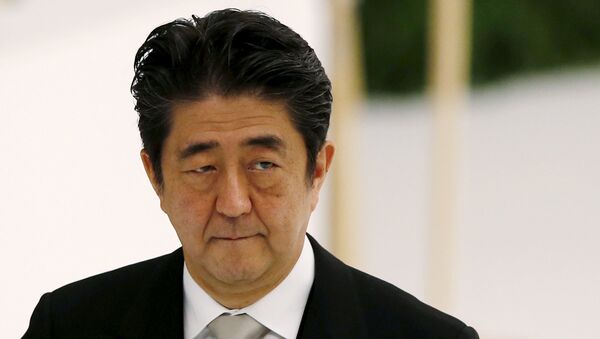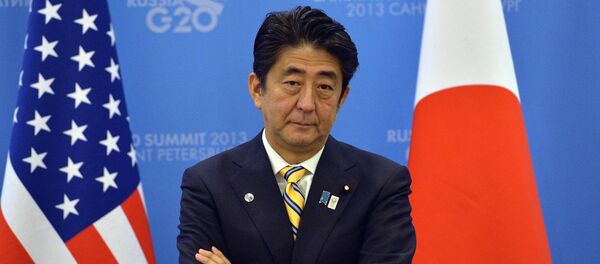WASHINGTON (Sputnik) — Woodrow Wilson Center Senior Northeast Asia Associate Shihoko Goto told Sputnik that although Abe’s military policies were not popular with the Japanese people, the opposition parties in the House of Representatives, or Diet — the main chamber of parliament — had failed to take advantage of public sentiment.
“It's no surprise the no-confidence motion didn't go through,” Goto said. “Abe has the majority in the Diet, and he was just reelected leader [of the ruling Liberal Democratic Party] unopposed.”
A poll conducted on September 12-13 by the Asahi Shimbun newspaper showed Abe’s approval rating had dropped to below 40 percent, while his disapproval figures were higher — over 40 percent.
However, Goto said the opposition parties led by the Democratic Party of Japan (DPJ) had failed to express or effectively lead the popular disquiet.
“The opposition party really hasn't been able to leverage anger towards the security legislation to build support for itself,” she said. “The DPJ has focused on opposing, but has failed to give a clear alternative roadmap.”
The unsuccessful no-confidence motion was one of a series of attempts by the opposition to stall the passage of a set of bills Abe has designed to expand the powers of the country’s Self-Defense Force.
Historian and journalist Tim Shorrock, an expert on Japan and Northeast Asia, told Sputnik the no-confidence motion’s failure meant that Abe would now be able to push ahead faster and with increased confidence to implement his militarization program.
“Yes it does [mean that],” Shorrock explained.
However, Shorrock, the author of “Spies for Hire: The Secret World of Intelligence Outsourcing,” also predicted that by ignoring growing demonstrations and polls showing increasing concern about his policies, Abe was provoking a serious backlash.
Abe also continued to benefit from the support of the US government and military, which support his rearmament policies, Shorrock added.
“We can’t forget his perennial US backers of Japanese re-armament,” he warned.
Abe’s LDP-Komeito coalition controls more than two thirds of the seats in the Diet, allowing them to override any possible defeat of his militarization legislation in the upper house of parliament.





